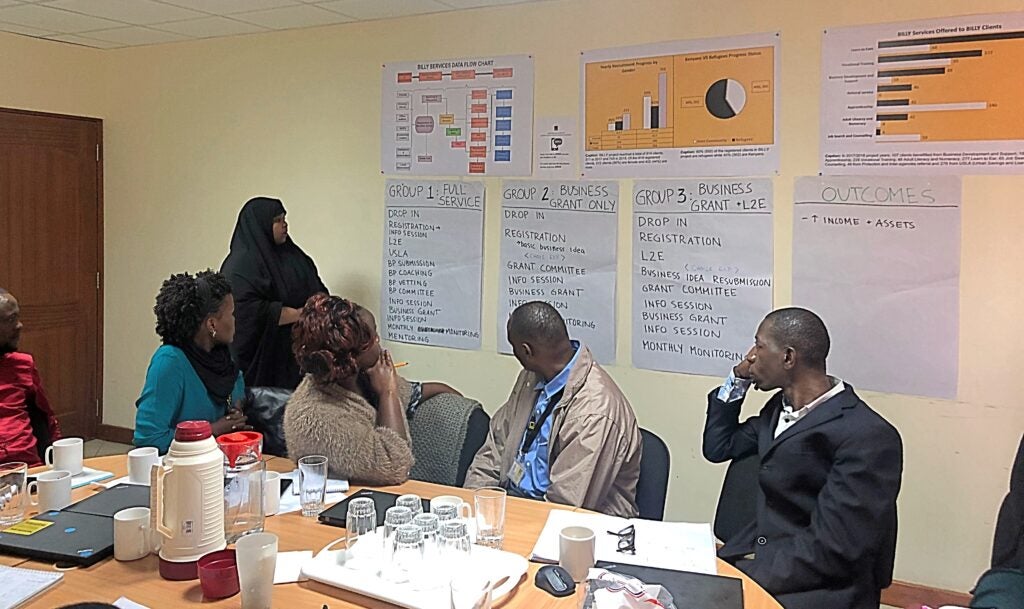gui2de’s Response to COVID-19
gui2de has been working with our partners in India, Pakistan, Kenya, and Tanzania to quickly respond to the challenges posed by COVID-19 in developing countries by adapting our ongoing projects, initiating new research and data collection, and disseminating evidence-based policy guidance for governments, NGOs, and the private sector.
A collection of the ongoing work for our affiliate researchers is provided on this page.
Projects
Blogs
Surveys
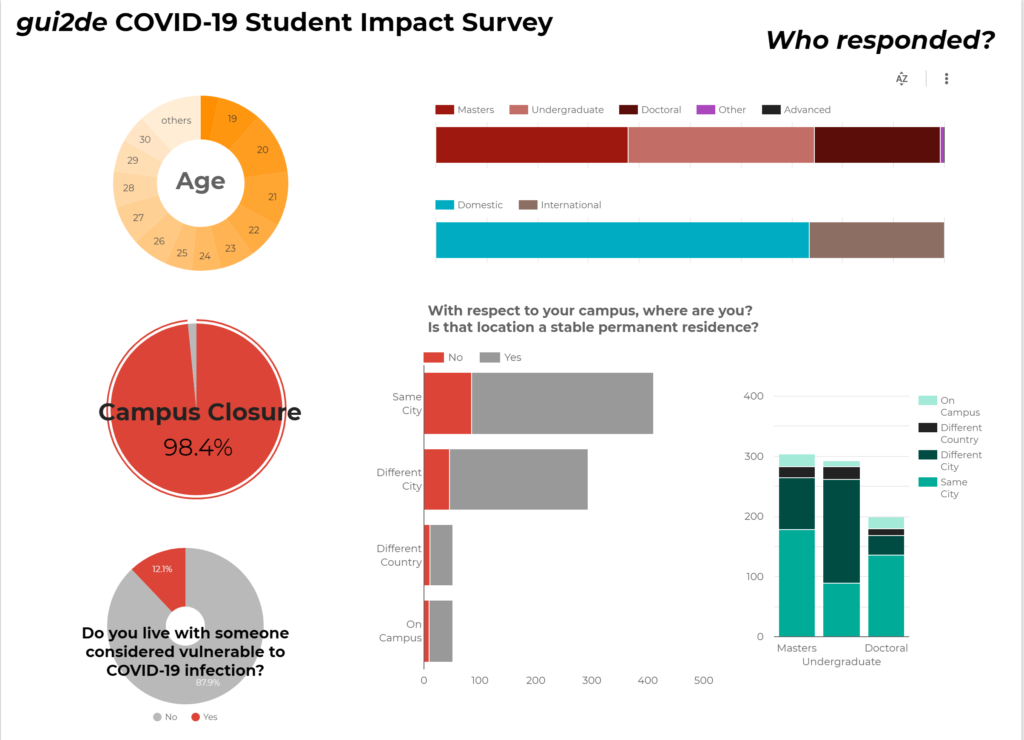
COVID-19 Student Impact Survey
Take gui2de‘s COVID-19 Student Impact Survey here.
Survey Instruments
Publications
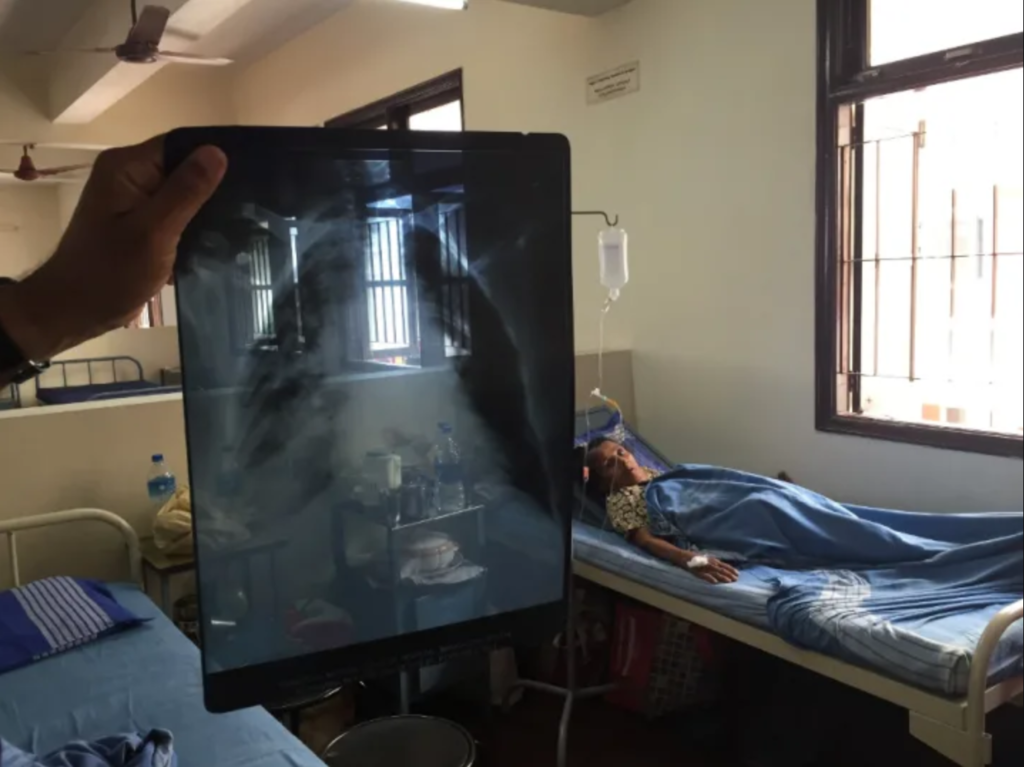
Op-Ed
How can India address big surge for health care after coronavirus lockdown?
“India’s COVID-19 lockdown bought valuable time. Infection rates are only now starting to increase, and case fatality rates have remained lower than in many other countries. But how the health crisis plays out in the future depends critically on what is done with this borrowed time — and how effectively planning is done for the future…”
By Jishnu Das – June 3, 2020
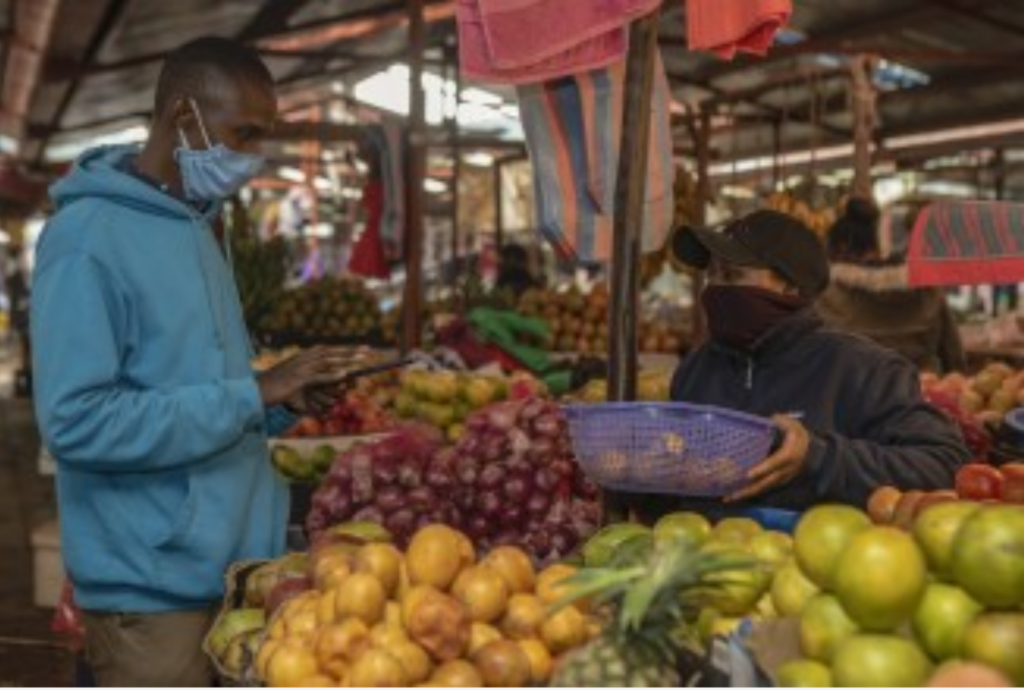
Policy Paper
The COVID-19 Development Innovation Agenda: An Economic and Financial Lens
“A successful response to both the coronavirus’s health and economic costs in less developed countries requires that we move quickly to accelerate innovation and learning. The innovation agenda comes from the uncertainty associated with any emergent crisis. To support the public health response, innovation is needed to make behavior change easier to adopt and sustain. To meet the needs of firms working to rebuild markets, impact investors should be seeking to create innovative financial products and vehicles to avoid a liquidity crunch that could wipe out decades of investing for social impact.”
By James Habyarimana – May 27, 2020
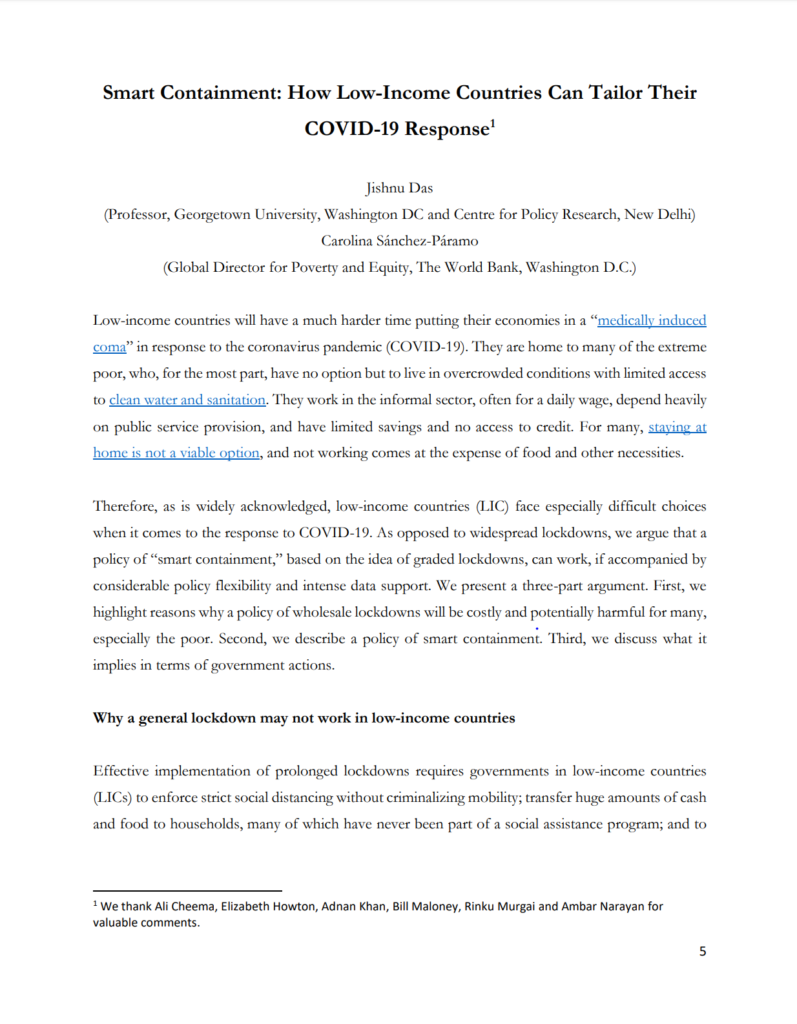
Policy Paper
Smart Containment: How Low-Income Countries Can Tailor Their COVID-19 Response
“Low-income countries will have a much harder time putting their economies in a “medically induced coma” in response to the coronavirus pandemic (COVID-19). They are home to many of the extreme poor, who, for the most part, have no option but to live in overcrowded conditions with limited access to clean water and sanitation. They work in the informal sector, often for a daily wage, depend heavily on public service provision, and have limited savings and no access to credit. For many, staying at home is not a viable option, and not working comes at the expense of food and other necessities…”
With Jishnu Das – May 15, 2020
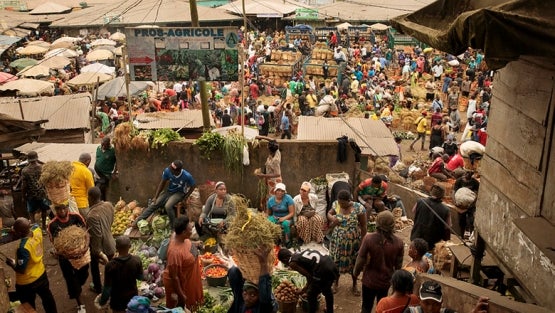
Op-Ed
Smart containment: How low-income countries can tailor their COVID-19 response
“Low-income countries will have a much harder time putting their economies in the “medically induced coma” of a full lockdown in response to the coronavirus (COVID-19) pandemic. They are home to many of the extreme poor, who, for the most part, have no option but to live in overcrowded conditions with limited access to clean water and sanitation. They work in the informal sector, often for a daily wage, depend heavily on public services, and have limited savings and no access to credit. For many, staying at home is not a viable option, and not working comes at the expense of food and other necessities…”
By Jishnu Das – May 14, 2020
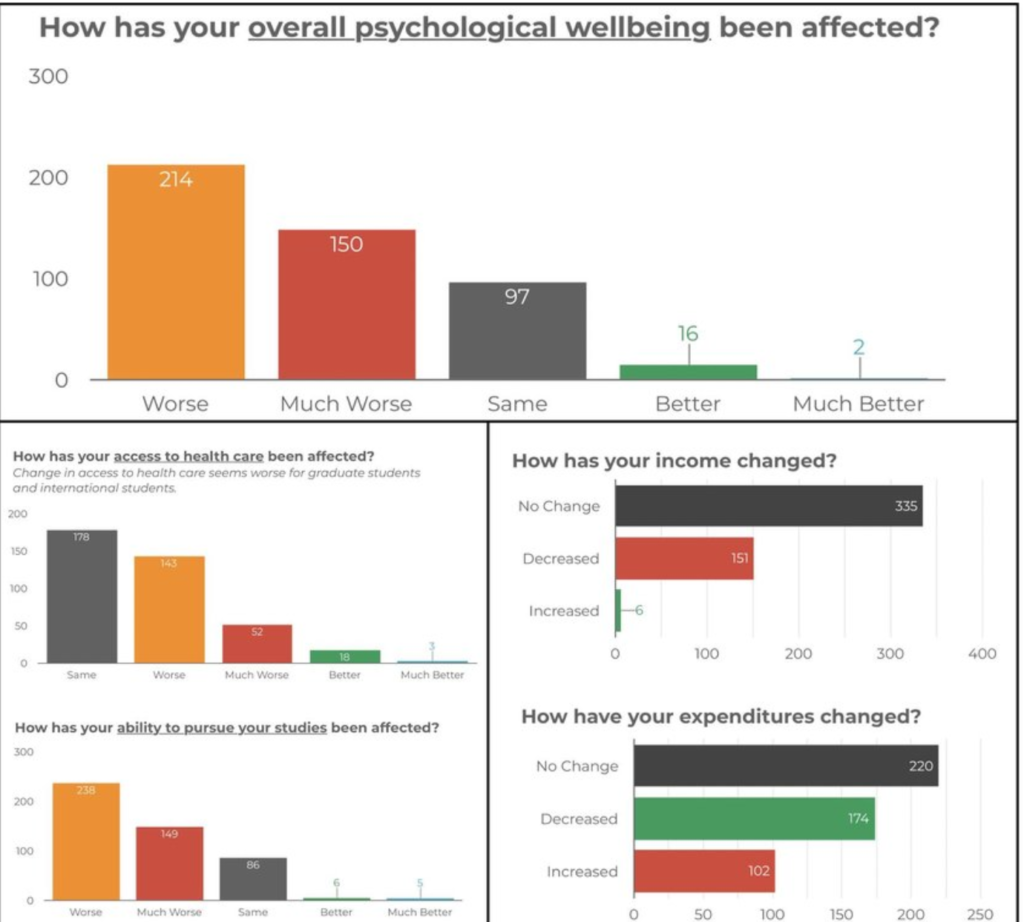
Manuscript
Covid-19 Diaries: Early Impressions from an Online Questionnaire 1
We launched an online questionnaire for students to voice their experiences in the light of the Covid-19 pandemic. This note, submitted to American Ethnologist, is based on the first 516 responses and highlights a significant worsening of psychological well-being as home lives are now intertwined with academic pursuits at a time of considerable anxiety and stress.
By Benjamin Daniels, Ali Hamza, Beatrice Leydier, and Jishnu Das – May 1, 2020
Media

Podcast
Ask a Political Scientist: What makes a good democracy? Lessons from research in India
We all think democracy is good for us (well, many of us think that), but what makes for a “good” democracy? Is it as simple as fair and free elections, or something more? (hint: it’s probably more.) This week we are joined by Irfan Nooruddin, professor and chair of Indian politics at the Georgetown School of Foreign Service to discuss what makes for good democratic governance, with lessons learned from his research in India! We’ll also explore whether, given recent events, the 21st century is likely to be American, Chinese, Indian … or something else?
With Irfan Nooruddin – May 11, 2020
See gui2de‘s earlier work on COVID-19 here.

